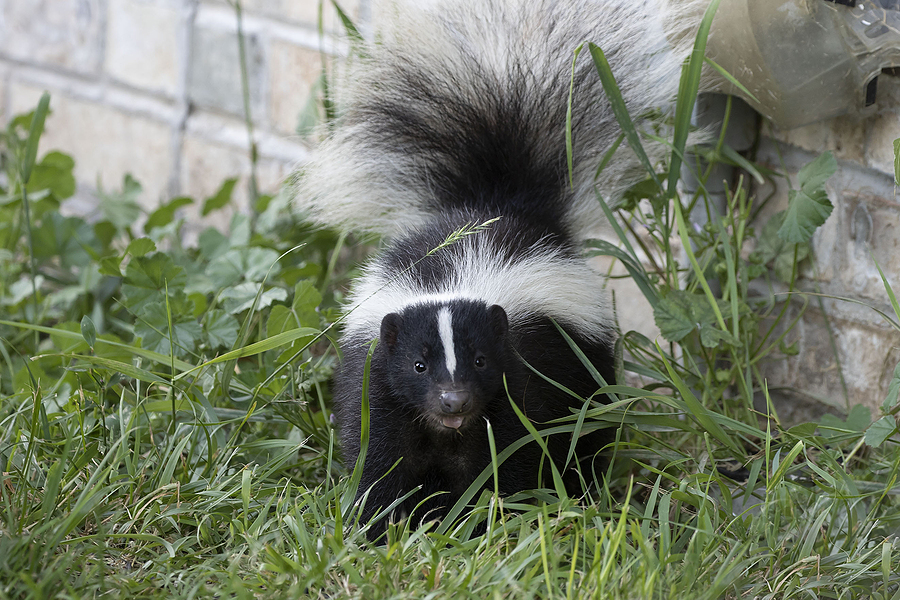We all know that skunks can deliver a nasty-scented spray from their backside, but are skunks dangerous from the front? Skunks use their spray to mark territory and defend themselves from potential threats, but they can still cause some damage otherwise.
Skunk Defenses
Generally speaking, most people won’t get close enough to a skunk to elicit a bite. A skunk’s pungent spray is usually enough of a deterrent for most people to leave it alone. However, if a skunk is cornered, it may resort to going on the offensive. Skunks’ claws are well-situated for digging but can do plenty of damage to flesh. Skunks have sharp teeth and a set of larger fang-like teeth on the top and bottom sets. These allow them to rip through flesh while eating, or defending themselves.
Diseases That Skunks Carry
If you or your pet are bitten by a skunk, you should wash the wound with mild soap and warm water; then go to a hospital or vet, respectively. Skunks can carry a wide array of diseases, from rabes to canine hepatitis. While humans cannot get canine hepatitis, it can be incredibly dangerous to your pet if they are not inoculated. Additionally, they can carry canine distemper, leptospirosis, listeriosis, Q-fever, tularemia, and Trypanosoma.
Cleaning Skunk Spray
There are plenty of de-skunking cleaning products on the market, but you can make your own mixture for little to no cost, from common household products. Mix 1 quart of 3% hydrogen peroxide with 1 teaspoon of strong dish soap and ¼ cup of baking soda. If you do not have hydrogen peroxide, white vinegar can be substituted. This mixture can clean up the spray from pets and humans alike, just be careful not to get any in their eyes. Hydrogen peroxide may lighten fur or hair, so don’t leave the mixture on for more than five minutes at a time. Do not store this mixture stored in a sealed bottle or container, as it might explode.
For clothes, add ½ cup of baking soda to your washing machine along with your normal detergent. Hot water is more effective if the clothes can handle it. Repeat washing as needed. Air dry, as a dryer can bake in the skunk smell. For furniture, vigorous cleaning with the proper products can be sufficient if it hasn’t had time to set in. for carpets and fabric furniture, a steam cleaner can be effective in removing the spray.

